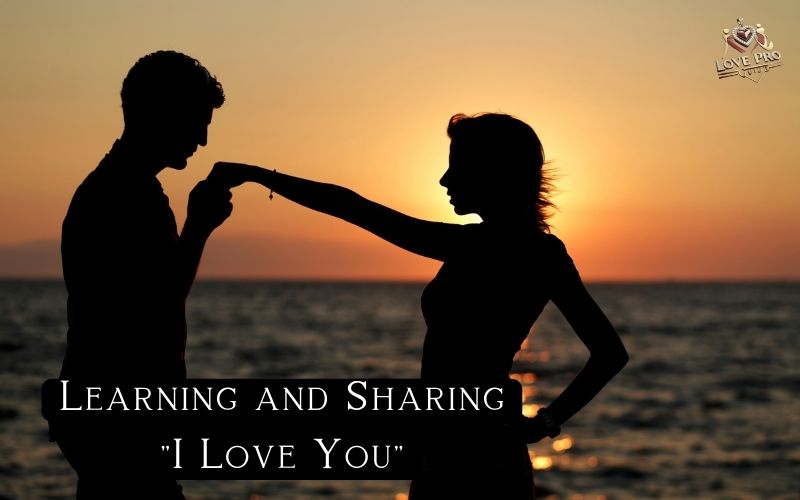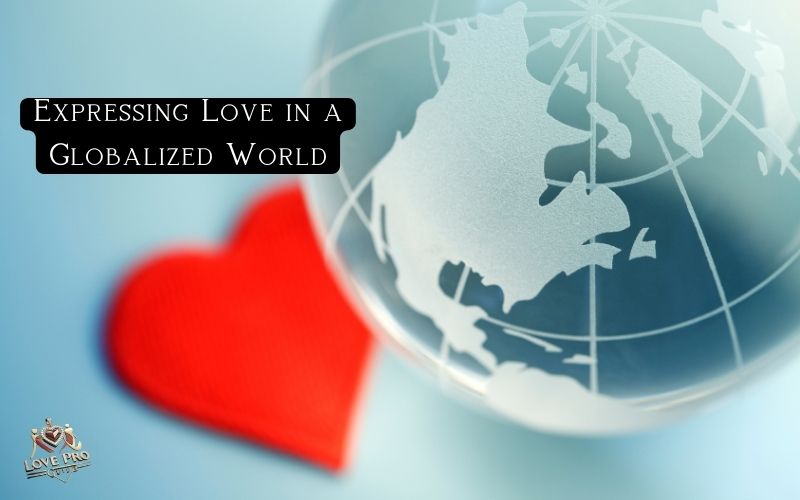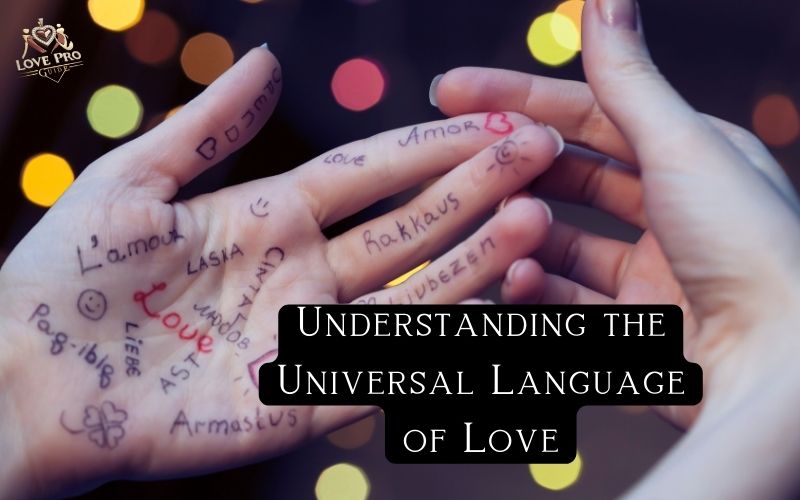Introduction
The phrase “I love you” is one of the most powerful expressions of affection and connection that can be conveyed between individuals. It transcends cultures and languages, offering a universal sentiment of deep emotion and commitment. This what is i love you in 100 languages blog explores how to say “I love you” in 100 different languages, celebrating the diversity and beauty of love across the globe.
Afrikaans – Ek het jou lief
Albanian – Te dua
Amharic – Ewedihalehu
Arabic – Ana behibek (male to female), Ana behibak (female to male)
Armenian – Yes sirum yem k’ez
Basque – Maite zaitut
Bengali – Ami tomake bhalobashi
Bosnian – Volim te
Bulgarian – Obicham te
Burmese – Mainnkohkyittaal
Cantonese – Ngoh oi ney
Catalan – T’estimo
Cebuano – Gihigugma tika
Chichewa – Ndimakukonda
Chinese (Mandarin) – Wǒ ài nǐ
Croatian – Volim te
Czech – Miluji tě
Danish – Jeg elsker dig
Dutch – Ik hou van jou
Esperanto – Mi amas vin
Estonian – Ma armastan sind
Finnish – Rakastan sinua
Fijian – Au domoni iko
French – Je t’aime
Georgian – Mikvarhar
German – Ich liebe dich
Greek – S’agapo
Gujarati – Huṁ tanē prēma karuṁ chu
Haitian Creole – Mwen renmen ou
Hausa – Ina son ku
Hawaiian – Aloha wau ia ‘oe
Hebrew – Ani ohev otach (male to female), Ani ohevet otcha (female to male)
Hindi – Main tumhe pyaar karti hu (female to male), Main tumhe pyaar karta hu (male to female)
Hmong – Kuv hlub koj
Hungarian – Szeretlek
Icelandic – Ég elska þig
Igbo – A hụrụ m gị n’anya
Indonesian – Aku cinta kamu
Irish – Taim i’ ngra leat
Italian – Ti amo
Japanese – Aishiteru
Javanese – Aku tresna sampeyan
Kannada – Naanu ninna preetisuttene
Kazakh – Men seni jaksy koremin
Khmer – Khnhom sralanh anak
Korean – Saranghae
Kurdish – Ez hej te dikim
Kyrgyz – Men seni jakshy korom
Lao – Khony hak chao
Latvian – Es tevi miilu
Lithuanian – As tave myliu
Luxembourgish – Ech hun dech gaer
Macedonian – Te sakam
Malagasy – Tiako ianao
Malay – Saya cinta padamu
Malayalam – Njan ninne sneihikkunnu
Maltese – Inhobbok
Maori – Aroha ahau ki a koe
Marathi – Mi tujhyavar prem karato (male to female), Mi tujhyavar prem karte (female to male)
Mongolian – Bi chamd khairtai
Nepali – Ma timīlā’ī māyā garchu
Norwegian – Jeg elsker deg
Pashto – Za ta sara meena laram
Persian – Dooset daram
Polish – Kocham cię
Portuguese – Eu te amo
Punjabi – Mai taunu pyar karda
Romanian – Te iubesc
Russian – Ya tebya lyublyu
Samoan – Ou te alofa ia te oe
Scottish Gaelic – Tha gaol agam ort
Serbian – Volim te
Sesotho – Kea u rata
Shona – Ndinokuda
Sindhi – Maan tokhe prem karyan thi
Sinhala – Mama oyāṭa ādareyi
Slovak – Ľúbim ťa
Slovenian – Ljubim te
Somali – Waan ku jeclahay
Spanish – Te amo
Sundanese – Abdi bogoh ka anjeun
Swahili – Nakupenda
Swedish – Jag älskar dig
Tagalog – Mahal kita
Tajik – Man turor dust medoram
Tamil – Nan unnai kathalikaraen
Tatar – Min sine yaratam
Telugu – Nenu ninnu premisthunnanu
Thai – Chan rạk khuṇ (female to male), Phom rak khun (male to female)
Tibetan – Nga kayrang-la gawpo yuh
Tigrinya – Yefkreka
Tongan – Ofa atu
Turkish – Seni seviyorum
Turkmen – Men seni söýýärin
Twi – Me dor wo
Ukrainian – Ya tebe lyublyu
Urdu – Main tumse pyaar karta hoon (male to female), Main tumse pyaar karti hoon (female to male)
Uzbek – Men seni sevaman
Vietnamese – Anh yêu em (male to female), Em yêu anh (female to male)
Welsh – ‘Rwy’n dy garu di
Xhosa – Ndiyakuthanda
Yiddish – Ikh hob dikh
Yoruba – Mo nifẹ rẹ
Zulu – Ngiyakuthanda
Understanding the Universal Language of Love
Because love is all around the word, Not exactly but yes we can consider it that way, Saying I LOVE YOU in different languages proves how diversified culture has this world in actual and indeed LoVE part have unity across the globe. The one thing that doesn’t change, across languages and millions of words spoken from lover to lurvey is the way we express love.
The more I think about The Big Sick, the more remarkable it becomes; a real testament to how love can bridge all divides and unite us as people no matter where we’re from.
It can be a romantic gesture, an expression of respect to someone else’s culture or just learning and growing in the world by saying “I love you” in different languages.
Every word has its own charming tune and feeling, which when thrown together creates a beautiful melody in the symphony of global languages.
The Cultural Significance of “I Love You”
In most cultures, the word “I love you” means a lot more than merely words; it also involves an emotional attachment to another person… and so on.
This phrase is used in such a different context depending on what culture it is found, that using the method of one vs. making use of another leads to tears and traditions based further into its meaning.
So if you say things like I love you to someone it does not mean the sane and important guage as in YOUR language}>
This understanding also helps develop an appreciation for how love is shown in different cultures across the globe.
The Impact of Language on Love
Our language defines our experience of joy, grief or love. How We Say I Love You in Other Languages Can Affect Relationships.
In some languages, they have many words for love to indicate the kind of affection, between romantic love and friendship or family.
By looking at these linguistic differences, we get some clues into the different ways in which love is experienced and expressed by people of varying cultures.
It is gives a great insight into the depth and complexity of human relationships, and how love can also be communicated in various forms.
Romantic Gestures and Multilingual Love
The multilingual expression of your love, kindheartedness and thoughtfulness can just be so charming. Whether y[ur i… a multisexual relatIonshi- or simply w~nt tI Imprss yourself, saying
Saying I love you in their language will help bring a connection between the two of you and show that your lover appreciates where they are from.
It will also improve a little mystery and romance to your relationship – no long term partner needs all the details. Think about how loved one will feel when you whisper “I love you” to their native language.
Meaning that, this small act can becoming a connection between the two of you and possivility create memories.
Learning and Sharing “I Love You”

So, it would be fun and a learning experience you can do with your partner / friend or even with family as well that is how to say I love you in different languages. It can lead to greater dialogue on cultural differences, various languages and how people express themselves.
Make learning a new language or phrase something you can both strive to achieve, strengthening that bond with one another. It is a wonderful way to celebrate love and diversity of language. When a Guy Asks About Your Love Life
The Universality of Love
What is i love you in 100 languages So I can write in two languages: (the reason I chose this) Although “In other words the same sensation but with different sounds” Would be a correct translation to the text, it would lose its meaning.
A reminder that love, in the end is an intrinsic part of being human and something our lives all have, no matter where we come from or what language you speak.
This levelling universality extends to how “I love you” is spoken in different tongues. It is a gesture of recognition that as such our languages and cultures
feel that is so may change but the feel we all share never will. But as we know, love is a universal language that goes far beyond man-made borders.
Expressing Love in a Globalized World

Today, in our interconnected world, speaking of love words in multiple variants is still as needed. As we become more globalized with unlimited choices, crossing over borders in search of love and a better life; the ability to communicate love from one heart into another many cultures is ample language skill.
It is indicative of cultural acceptance and a cease to xenophobia in the globalized age.
What it is actually, is a recognition of the multicultural nature of society as we know it today — and an exercise in relating to people from different cultural backgrounds on a more profound level. How Does the World Express Love? 5 Global Valentine’s Traditions
Final Words of what is i love you in 100 languages
The true love can break all the geographical and cultural boundaries. Saying “I love you” in 100 languages is a beautiful declaration toward the multitudes and oneness of human feelings. Every one of those words resonates in different ways, because arrayed up and down is the magnificence colorfullness of how love vibrates across this earth.
You may want to impress a love interest who speaks another language, show appreciation for someone’s cultural background or expand your vocabulary — in which case you should know how to say ‘I love You’ in other languages since Love is universal.











